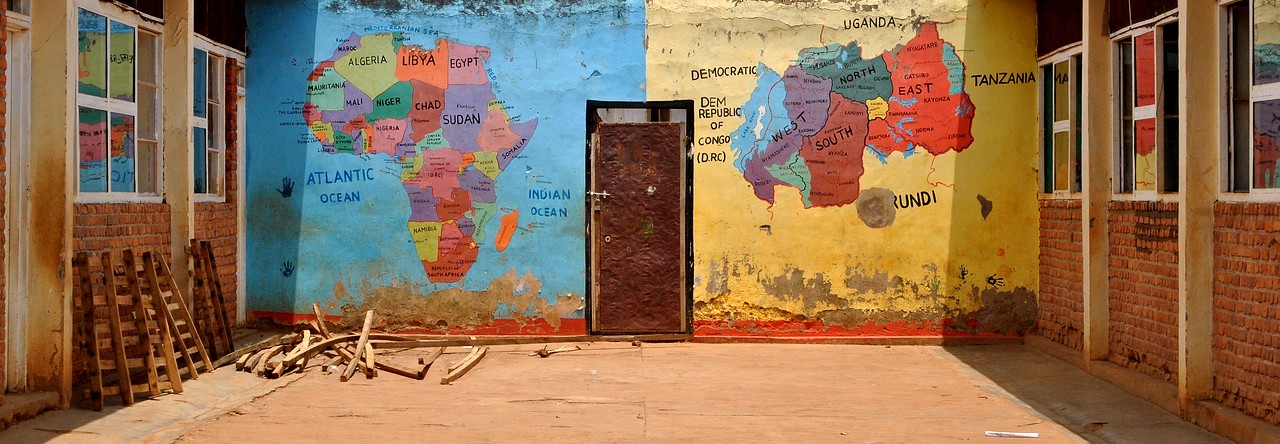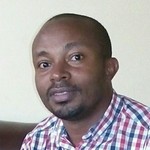— By James from Kenya
Walking in the streets and on the roads of Kenyan cities, towns and even small shopping centers, you are likely to find so many posters pasted everywhere advertising different things. This period of time, being an election season, the most common will be posters of different politicians promising heaven to the mwananchi, the citizen. But on a closer examination, you will discover a rather curious category of these posters. These are posters from waganga wa kienyeji, traditional healers. This is the gist of this article.
I can’t say for sure when these waganga wa kienyeji, traditional healers, started advertising their services publicly, but I am sure there is no city, town, or shopping center in Kenya that you will miss these posters. They seem to occupy any clearly visible point. Their major spots are the electric poles, street lamp poles (the few that are available), walls, pavements and on flower pots (particularly in Nairobi). Note that they don’t bear any official stamp of any respective administrative authority.
The content of the posters, mainly on cheaply designed black and white A4 papers, is the name of the healer, an introductory line saying, “Helps in:” followed by a list of burdens the healer lifts from people. Some healers write their messages on rectangular pieces of plywood, I guess for durability, then nail them especially on electric poles just above the danger warning from the electricity company.

A poster in Nairobi CBD. The Healer can help in Love matters, business, men’s libido, lost items, and quick money.
The healers’ places of origin are all curiously superstitious and stereotypical. Every region (at least in Africa) has those places that are “respected” for witchcraft. In East Africa we have Sumbawanga (Tanzania) and Kitui (Kenya). The coastal cities of Dar es Salaam (Tanzania) Mombasa (Kenya) are also mentioned highly maybe due to the belief that these regions are frequented by jinns. Therefore, most of these healers claim to come from one of these regions.
And what do they heal? An assortment of “ailments”.
Among the five healers that I sampled, their services are in the areas of love matters, business issues, identifying a thief, homestead protection (certainly against witchcraft), Men’s libido, court cases (to be ruled in your favuor), increasing riches, treating madness, providing magic rings (hope not from the land of Mordor), TB, epilepsy, impotence, promotion at work places, charms for body protection, and least of them, women’s libido.
One Dr Muhamed, whose posters are all over Nairobi CBD, can help you in the following areas: Love, Business, men libido, returning anything lost and quick money. Meanwhile, Dr. Eru, whose posters compete for same spaces with Dr. Muhamed’s, can help you in: Lost lover, lost items, family affairs, marriage, riches, business boosting and men’s libido. Dr. Rashid on the other hand advertises in Karen, Nairobi. If you need anything on love, business, identifying a thief and homestead protection, then he (or is it a she?), is the person to see.
Four hundred kilometers west of Nairobi, the towns of Rongo and Nyabohanse are not left behind. They receive these services. Although all traditional healers seem to read from the same script, the one in Rongo is a step further because he can help you get the coveted Green Card and Visa to the US. In Nyabohanse, though there are several advertisers, one deserves to be mentioned here. The healer is the only one I noted that helps in women’s libido.

A traditional healer’s notice at Nyabohanse town, Migori County. Among other things, the healer can increase women’s libido.
These cases set me thinking. Where are the adverts prevalent? Among the poor or among the rich? A spot check in Nairobi’s upper middle/upper class residential areas of Lavington, Kileleshwa, Kyuna, Karen and Spring Valley as well as slum areas like Kibera and Kayole bear these adverts. Nairobi CBD that experiences people of all walks of life bears them too. So I am at difficulties to ascertain the main target of these services.
Another thought that passes my mind whenever I see these services advertised so aggressively is the gravity of the issues advertised. It pays to mention that cure for men’s libido is the most frequently mentioned followed by love and third comes business. Can this be used to draw a conclusion that libido is a serious concern in the Kenyan society than even the want for money?
Should the trend worry the nation?









